Features
Difficult Dealings with Strong Political Personalities
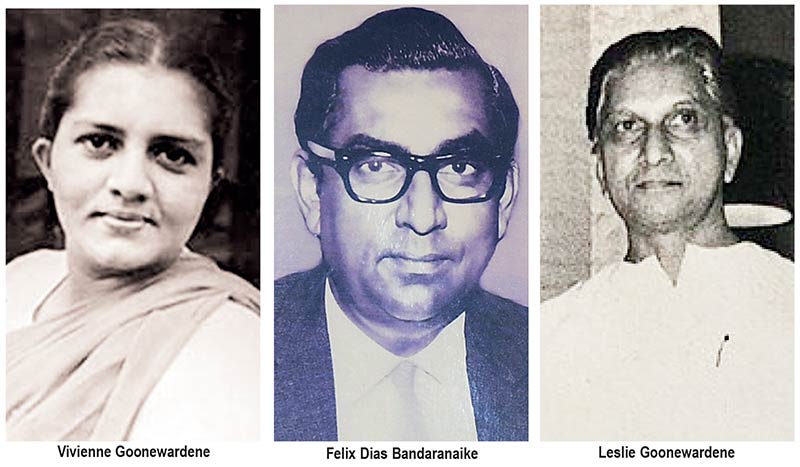
(Excerpted from the autobiography of MDD Pieris, Secretary to the Prime Minister)
Senior public officials have often to act as buffers between ministers, other important political actors, and other stakeholders in society. On many occasions, one had to absorb a significant degree of shock and act as a facilitator, mediator or referee. A rousing example of this side of one’s responsibilities came by courtesy of Mrs. Vivienne Goonewardene, the LSSP Member of Parliament for Dehiwela-Galkissa and wife of Mr. Leslie Goonewardene, Minister of Communications.
Mrs. Goonewardene was well known for her intrepidity, straight frank discourse and a degree of rebelliousness. She rang me one day. The prime minister had apparently “interfered,” in some matter pertaining to her electorate. I received a characteristic barrage aimed at the prime minister. “Tell that woman, just because she is prime minister, she has no business to interfere in my electorate. Tell her that I am not afraid of her, and I will know what to do if she tries her nonsense with me. Now, I want you to tell her what I told you in exactly the same words,” insisted Mrs. Goonewardene.
I listened to this tirade with a degree of amusement. This was vintage Vivienne. I said “Madam, you meet the Prime Minister in Parliament. Why don’t you tell all this to her yourself’.?” This time it was my turn to get blasted. “That is none of your business. You do what is told. This is a formal request,” she replied. I then told her “Madam, if you want to use your own words, you will have to deliver them yourself. I will however, tell the prime minister that you spoke to me and that your were deeply upset about what you reported she had done in your electorate, and that as an MP you were unwilling to accept it.”
Mrs. Goonewardene was not pleased. She said, “All right, if you don’t have the guts to tell her what I have said, do it your way!” And that is what I did. I did not think it my function as a public servant to promote disharmony and spread ill will. What was relevant was that an MP was upset at a purported action of the prime minister, which it was important to bring to her attention in a suitable manner so that the issue could be addressed. Aggression and abuse would not have been helpful.
Sometimes, it becomes one’s unpleasant duty to clash with ministers, and it occasionally happens. I was Acting Secretary to the Ministry of Defence and Foreign Affairs. Mr. WT Jayasinghe and the PM were abroad. There occurred an assault on a doctor in the South, by a police constable. The doctors were naturally up in arms and wanted the constable interdicted immediately. The Inspector General of Police, Mr. Stanley Senanayake came to see me personally, and stated that there was a long standing problem between this doctor and some members of the public; that there were complaints made regarding this doctor’s behaviour in the past; that he had been rude to police officers; and that there was also some personal enmity between this doctor and the police constable.
He reported that the police were seething and did not want the constable interdicted without a full preliminary inquiry, at which they were confident the doctor’s behaviour would come to light. The IGP said that the situation was so bad, that if the constable was interdicted due to the pressure of the doctors, he might have a strike by the police of that range on his hands. I told the IGP, that if there was prima facie evidence, no matter what the reason, the constable struck the doctor, things could not be left as they were, pending a full investigation which was going to take time.
I said that at the least, the constable should be sent on compulsory leave and a full inquiry begun immediately. I also told him that there should not be any postponements and that the inquiry should be continued until it was over. I also said that in view of the high feelings on both sides, a retired judge should conduct the inquiry. The IGP agreed with some reluctance, to these instructions of mine given in my capacity as Acting Secretary, Defence.
The doctors were not happy. They were not prepared to settle for anything short of interdiction. They began to canvass Ministers, and amongst others went to Minister Felix R. Dias Bandaranaike, who, without checking with the IGP or me, and not knowing the background or the serious implications on the police side had agreed that the constable should be interdicted. The minister rang me, and in a rather peremptory tone said, “I want that policeman interdicted.” I said “I am sorry, I won’t be able to do that,” and explained the complications, and how I had already taken steps to remove the constable from the scene, by sending him on compulsory leave, in spite of the opposition of the IGP.
I also informed him that the inquiry was starting immediately. But the minister was not satisfied. He had committed himself to the doctors. He said, “All that is well and good, but unless the police officer is interdicted, you will have a doctors’ strike on your hands, and you will be responsible.” I replied that “If I order interdiction there will be a police strike on my hands, for which too I would be held responsible.” I concluded by saying that as Acting Secretary, Defence & Foreign Affairs, I had also to be concerned with the morale of the police, and that what had been worked out was a fair compromise.
The minister was not pleased. “Then, you do any bloody thing you want,” he said and slammed the phone down. Curiously, virtually these same words were used on me by a few other ministers on some future occasions, and my left ear received significant training in coping with banging telephones. Fortunately, wiser counsel prevailed and a strike either by the doctors or the police was averted. The immediate commencement of the inquiry helped.
When the PM returned to the island, I briefed her on what had happened. She backed me fully, and said that the minister had no business to get involved in an issue, which was not within his area of responsibility. In the future too, she wanted me to use my own independent judgment, on any issue which concerned her responsibilities. This was one of the main reasons why it was easy to work with Mrs. Bandaranaike. She trusted you, and backed fully whatever decision you took. She was interested in hindsight only to the extent that its contemplation could improve the quality of foresight in the future, and not to find fault.
Another strong quality of the Prime Minister was her ability to listen to a strong dissenting view, without losing her temper or later holding it against you. In any case, as far as I was concerned, I had cleared this question the first day she came to office after having been sworn in as Prime Minister, as I had related earlier in these memoirs. We had a relationship built on frank and sincere talk and discussion. I never felt inhibited to speak out when I thought it was necessary. Although I did not get involved in political comment, sometimes the sheer sycophancy one saw around provoked one to say something.
For instance, on one occasion, when the ruling SLFP had lost a by-election fairly badly, there was a political figure trying to put a gloss on it in order to please the PM. I happened to be there, and in my presence he said “But Madam, there is nothing to worry. Over 12,000 progressives voted for us. That is a great victory.” I was so irritated that I shot back, that on this calculus of the “progressive” vote for the government, it would lose every seat at the next general election. The PM, surprised, looked hard at me, and then said, “quite right.” In fact, unfortunately for the government, the next general election, illustrated my point all too comprehensively. I did not realize at the time, that what I uttered was prophetic.
The case of Mr. R. Paskaralingam
An example of the PM, and her attitude towards dissenting views, was the case of Mr. R. Paskaralingam. Mr. Paskaralingam was a colleague, in the Civil Service, senior to me in the service, and at the time Additional Secretary to the Ministry of Education. He was an experienced, unruffled and a sound administrator who bore the brunt of the general administration in a large and difficult Ministry, thus freeing the Secretary, Dr. Udagama, a distinguished educationist, to address the quality, content and scope of education at the various levels.
Unfortunately, for Mr. Paskaralingam, during this period, he had approved an officer of the Ministry going to London on a scholarship, and the officer did not return. The Minister of Public Administration, Mr. Felix Dias Bandaranaike took a dim view of this, and wrote a letter to the Prime Minister expressing extremely critical views of Mr. Paskaralingam’s negligence in permitting this officer to go.
The charge was that he was not diligent enough in checking all aspects before he gave permission.
This was also a time of stringent exchange controls, where a system of exit permits existed without which no one could travel abroad. Particularly in the climate of the time, the charge against a senior public servant of Mr. Paskaralingam’s position was serious.
I held quite a different view and I expressed it to the Prime Minister. I said that all of us in the public service work on a basis of trust as far as our colleagues are concerned. There was no way that you could look into every representation made to you by a fellow public servant. The whole administration would grind to a halt if you spent your time investigating every assertion or statement made to you. It was just not practical and I explained to the Prime Minister that Mr. Paskaralingam, who was a very busy person would have had to take his Assistant Secretary’s word in this instance. I told her that I would have done exactly the same thing.
That passed. But shortly thereafter the issue of acting arrangements in the Ministry of Education came up, since Dr. Udagama was due to go abroad. Mr. Paskaralingam was the next senior officer. The period involved was about 10 days. I therefore prepared as is customary, a letter from the Prime Minister to the President recommending his appointment as Acting Secretary. Secretaries even then were appointed by the President, on the recommendation of the Prime Minister. When I took the letter for signature, the Prime Minister said, “No, I can’t have him act. We will get a Secretary from another Ministry to act.”
I asked what the problem was. She said that some members of Parliament had made complaints to her about various transfers and so on made by him. I asked whether any of these complaints were inquired into. She said “No,” but she would have problems with the MPs, if Mr. Paskaralingam acted. I told the Prime Minister that Mr. Paskaralingam was one of the hardest worked officers. He was in office by 7.30 in the morning and on most days left after 7.30 in the night. He carried a tremendous burden of administration and was the second most senior officer in the Ministry. Acting for the Secretary, was not a favour. It was but his due.
I said that a man was entitled to the “fruits” of his labours. I also said that as Prime Minister, she should not come to any conclusions, based on what some MPs may have said, without investigating the matter and establishing its truth or otherwise. But the Prime Minister was still not convinced. She said that she would have problems with the MPs. I then said, “Excuse me,” and started walking out of the room. “Where are you going?” inquired the Prime Minister. I said, I was going to bring the seniority list of the Sri Lanka Administrative Service. “What for?” asked the Prime Minister. I said, “Madam, the government cannot have it both ways. You cannot get work out of people and not give them their due.
If you believe what the MPs have stated without any inquiry, it is obvious that you yourself have lost confidence in the person. Such an official should not be No. 2 in a Ministry as important as the Ministry of Education. Please select someone else from the seniority list and we will move out Mr. Paskaralingam immediately.” “Sit down,” the Prime Minister ordered. Then she reflected. Put this way, the Prime Minister realized that acting on a vague impression created in her mind was not in order. She signed the letter, recommending Mr. Paskaralingam as Acting Secretary, Education. I thanked the Prime Minister and reminded her that she was free to make any investigations about complaints from MPs.
I also told her that this was only one specific case, and that it was important that certain fair norms be established in regard to the interaction between political authorities and the public service, and that these be visible to the public service. This was necessary, in order to obviate frustration and produce an efficient service, which was in the interests of both the government and the country.
Speaking of Dr. Udagama, it is worth relating an amusing incident that occurred around this time. One day, I was at Temple Trees working with the Prime Minister. The time was about 2.45 p.m. On a matter arising from some of the papers I was discussing with her, she wanted to speak with Dr. Udagama. The switchboard operator was instructed to get him on the line. The operator first trying his office and being told that he could be at home, had attempted to reach him there. Soon, a hesitant and somewhat embarrassed operator came up to the Prime Minister and informed her that Dr. Udagama was at home but was having a bath!
“What! having a bath at this time?” blurted out an incredulous Prime Minister. She had a sense of humour, and the next moment observed “what a strange man!” Evidently Dr. Udagama had come home for a late lunch, and decided to take a shower before getting back. I mentioned this episode to him. We had a good laugh. Even today we sometimes laugh about this when we meet. I however had told Dr. Udagama that I have no means of describing the look on the Prime Minister’s face when she was told that her Secretary, Ministry of Education was enjoying a bath at 3 o’clock in the afternoon on a working day.
Features
Africa gaining ground in intra-regional cooperation
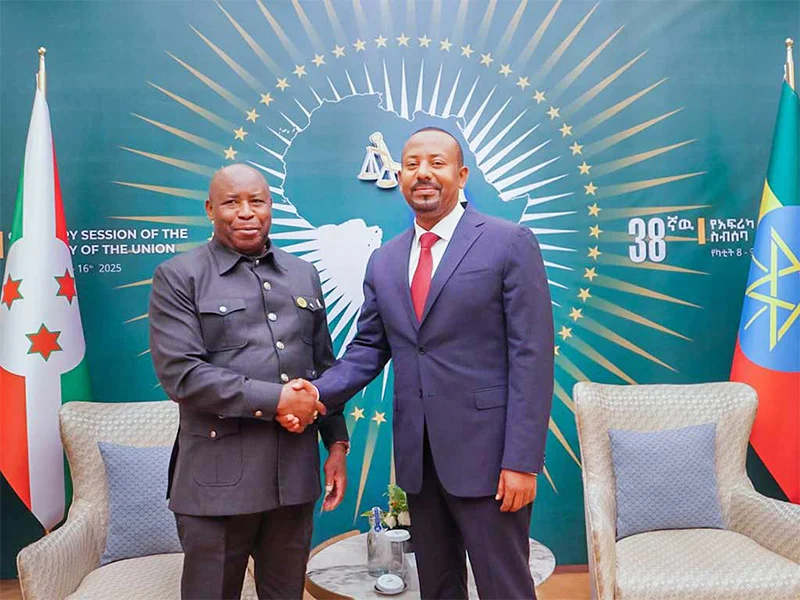
 At a time when the US is veering towards a policy of international isolation, it augurs well for international growth that Africa is emanating signs of stepping up intra-continental cooperation. Above all, Africa is in the process of proving that she could ‘stand-alone’ and be relatively autonomous in her ground-breaking growth drive.
At a time when the US is veering towards a policy of international isolation, it augurs well for international growth that Africa is emanating signs of stepping up intra-continental cooperation. Above all, Africa is in the process of proving that she could ‘stand-alone’ and be relatively autonomous in her ground-breaking growth drive.
Of course such epochal developments should not be construed as meaning that Africa would sooner rather than later be rid of the socio-political and economic bottlenecks that have been dogging her at heel for decades. What they mean is that she is managing these problems in a consistently constructive fashion currently.
We in South Asia in particular need to take note of these developments. This is mainly in view of the fact that SAARC is non-functional. It is not ‘dead’, as a former President of Sri Lanka tried to have us believe, but its virtual paralytic state at present should have discerning sections in the region concerned. It is robust regional cooperation in the fields that matter that helps a country in its growth and development and if SAARC is dysfunctional this is a serious setback for Sri Lanka and the region.
Closer integration into BIMSTEC and ASEAN is certainly desirable but if governments are having Sri Lanka’s best interests at heart it is primarily to the SAARC region that they need to look. For instance, how Sri Lanka is hoping to further its growth prospects by not factoring in stepped-up and positive economic interaction with India and Pakistan, for example, is incomprehensible.
There is a strong regional dimension to any country’s economic growth and unless the relevant regional cooperative mechanisms are rendered operational, the desired level of national development could not be achieved in full. Hence the need to render SAARC fully operational once again.
However, unless and until governments of the region realize the urgency of meeting the above challenge, SAARC would remain in a state inertia. The pressing need is visionary political leadership at the regional level. Right now this is seriously lacking.
It would seem inappropriate and misleading at first blush to attempt to draw comparisons between the vast continent of Africa and the South Asian region in view of the latter’s comparative geographical smallness, but this is more so why Africa’s present exercises in intra-continental cooperation need to be positivey assessed. If Africa could be making some headway in intra-regional cooperation, given her ‘Giant’ status and her seeming unmanageability as a collectivity, why can’t South Asia, a comparatively physically small region? ‘This is the Question’.
While the above and connected matters of importance for regional growth need to be seriously studied by political leaders and policymakers of South Asia, they would be acting in the regional interest by taking a leaf or two out of Africa’s book of cooperative growth and development.
All watchers of international development should feel compelled to take a hard, discerning look at the 38th African Union (AU) Summit held in Addis Ababa, beginning February 15th this year. Interestingly, the Summit theme was, ‘Justice for Africans and People of African Descent through Reparations.’
Coincidentally, erstwhile Namibian leader Dr. Sam Nujoma passed away on the eve of the Summit. Nujoma was perhaps the last of those prominent leaders from Africa who doggedly championed the cause of the libration of his country and of the continent from the shackles of colonialism. More leaders of his ilk are required by the South in general and Africa in particular.
While the acquiring of ‘reparations’ for colonialism’s ravages could prove a very long-gestation project, it is vitally important for Africa and other regions that came under colonial control to keep the issue constantly in focus.
Meanwhile, Africa’s gains in economic cooperation under the AU need to be studied appreciatively by the South and other regions in their interests. Some of the achievements of the AU under the aegis of the African Development Bank (ADB), as outlined by outgoing president of the Bank, Dr. Akinwumi A. Adesina at the Summit were: ‘515 million African lives were transformed over the past decade, including 231 million women, 127 million people gained access to better services in terms of health, 61 million people gained access to clean water, 33 million people benefited from improved sanitation, 46 million people gained access to ICT services, 25 million people gained access to electricity.’
Reports said that the Summit also, among other things, adopted the ‘African Financing Stability Mechanism’. Under this arrangement, $20 billion in debt refinancing will be provided for African nations. This will happen alongside the adoption of the ‘Strategic Framework on Key Actions to Achieve Inclusive Growth and Sustainable Development in Africa Report’.
The Report outlines key actions for Africa to ‘Achieve and sustain an annual growth rate of at least 7% of GDP over the next 5 decades.’
The above are a few aims that the AU intends to achieve going forward for the whole of Africa. But they are sufficient evidence of the current effectiveness of the collective organization. We see here a notable example in South-South cooperation which is a dire need today in the developing world.
South-South cooperation is the way to go particularly in consideration of the US’ current policy of virtually ridding itself of the past policy of helping the South by way of development assistance. Instead of bemoaning the fact that institutions, such as USAID, will be almost no more, the South would do well to take a hard look at Africa’s success stories in helping itself with little or no external assistance.
The discontinuation of US assistance needs to be seen as the proverbial ‘blessing in disguise’ by the South. Here is an opportunity for the Southern hemisphere to finally rid itself of those neo-colonial umbilical binds that have been preventing it from achieving genuine national liberation.
To be sure, the South is not going to meet with spectacular success by adopting the African model in the near term. But if the model is doggedly persisted with by enlightened governments of the South some success is certain to accure to the hitherto ‘Wretched of the Earth’, going forward.
Features
Mrs. World Tshego Gaelae …doing it differently

While most of our pageant winners get involved in frivolous activities, during their reign, the 40th Mrs. World pageant winner, Tshego Gaelae, from South Africa, is keen to bring into the spotlight her country’s potential.
Before her departure for the Mrs. World pageant, held in Las Vegas, in the USA, in January, the Lawyer, Entrepreneur, Model and Digital Creator, said:
“I’m so excited to be sent not only as a delegate but a representative of those hopeful hearts that always want to see South Africa’s potential shine and win. I stand on the shoulders of icons, world champions, the Queens that have gone ahead of me, and of the world leaders that continue to ensure our global participation and impact.
“Thank you everyone for the support so far!”

A coke and a smile…with Sprite Cucumber her pick
Referring to the interview for the position of Mrs. World, Gaelae said: “We get to bring our most authentic self to advocate for the causes we want to advance through the most prestigious platform that is the Mrs World Pageant. What an honour to have such experienced judges who care to hear about what I want to achieve.”
The lead up to the prestigious Mrs. World event was doubly exciting for Gaelae as she got the opportunity to display not only her country’s creations but also check out certain nostalgic venues.
“We received the honour of being at the Elvis penthouse suite, at the Westgate Vegas! The space is spectacularly filled with iconic and historic presence, fit for the king that was Elvis Presley.”
The Mrs World participants spent an evening honouring Victoria’s Voice Foundation and Gaelae’s gift to the Foundation was a canvas shirt with President Nelson Mandela’s face printed on it. The shirt can either be worn or displayed in a frame, and Gaelae says she is so glad to have had the opportunity to present a piece of her beloved South Africa.”

The bangles she gifted to all the participants at the Mrs. World pageant
Gaelae went on to say: “I always joke about being Zulu in my past life, but on a serious note, I love the Zulu Culture so much, that I gifted my Mrs. World Pageant Sisters some beautiful bangles.”
They also visited the special Coca-Cola Store in Vegas, and got to taste some interesting flavours. And Gaelae’s pick … “Sprite Cucumber definitely wins for me.”
Mrs. World enthusiastically said that one of the biggest gifts she received out of her Mrs South Africa journey was that of sisterhood, “and it’s so amazing to come to the Mrs. World pageant and find it once again,” she went on to say.
“My roommate was the gorgeous Ishadi Amanda from Sri Lanka! We bonded with no delay, and laughed till we cried! I was literally paired with a sister from another mother.”
Tshego Gaelae also had a special comment to make regarding the article we published about her in The Island of 6th February, 2025.
“Thank you so much for the beautiful article and coverage.”
Features
Activate all that is good for your skin

 Hi! This week, too, I’m giving you some easy to prepare tips to help you achieve all that is good for your skin.
Hi! This week, too, I’m giving you some easy to prepare tips to help you achieve all that is good for your skin.
* Cucumber and Lemon:
Mix equal parts cucumber and lemon juice and apply the mixture on your face (avoiding eyes). Allow it to sit for 10 minutes and then rinse it off. This natural face beauty tip will brighten your skin tone and lighten blemishes, if used on a regular basis. The best aspect is that it is appropriate for all skin types!
* Tomatoes:
Scoop up the pulp of one tomato and apply it evenly on your face. Allow it to dry for 15 minutes before washing it off with warm water … to reveal a naturally radiant skin.
* Green Tea:
After steeping green tea in hot water for about 05 minutes, allow the tea to cool. Transfer the tea to a spray bottle and spray, in short bursts, or place a little amount onto a cotton pad and pat on your face after thoroughly cleaning it.
* Chilled Tea Bags:
A chilled black or green tea bag does wonders for your skin. This natural face beauty technique may rapidly reduce puffiness around the eyes, making them appear brighter and more alert. Place the tea bags on your eyelids and relax for 05 to 15 minutes while they perform their magic.
* Honey:
Applying a small amount of honey to your face every day is an excellent approach to getting healthy, bright skin. Honey’s absorbing properties draw out pollutants from skin pores and help completely cleanse your skin. Honey’s antibacterial effects heal and prevent acne. Honey’s antimicrobial qualities soothe skin irritation and protect skin from bacterial infections. Honey, has remarkable moisturising effects and is also a terrific relief for dry skin.
* Coffee:
Exfoliating on a regular basis improves the appearance of your skin, making it look younger and healthier. For those who enjoy coffee, a homemade coffee scrub is all the weekly nourishment your skin requires. Coffee’s anti-inflammatory qualities minimize redness, irritation, and acne. All you need to do is mix freshly ground coffee beans, coconut oil, and brown sugar to your desired consistency in a bowl. Massage gently in circular strokes over your face, then rinse with warm water. After using an exfoliant, always moisturise.
-

 Sports5 days ago
Sports5 days agoRemarkable turnaround for Sri Lanka’s ODI team
-
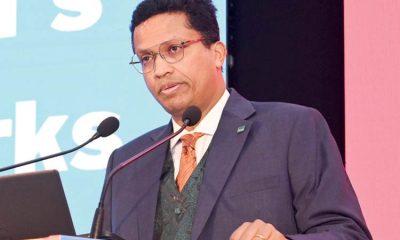
 Business5 days ago
Business5 days agoUN Global Compact Network Sri Lanka: Empowering Businesses to Lead Sustainability in 2025 & Beyond
-
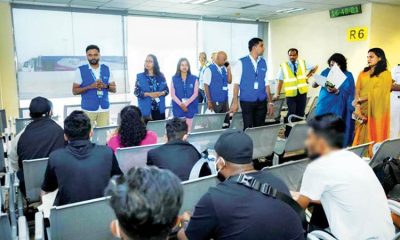
 Features5 days ago
Features5 days agoScammed and Stranded: The Dark Side of Sri Lanka’s Migration Industry
-
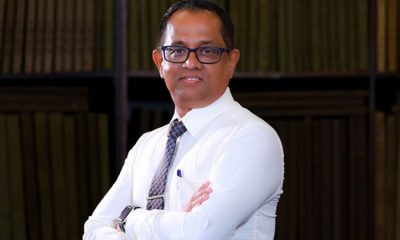
 News6 days ago
News6 days agoSpeaker agrees to probe allegations of ‘unethical funding’ by USAID
-
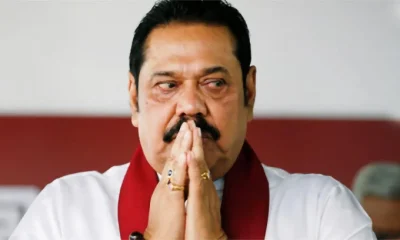
 Features4 days ago
Features4 days agoDon’t betray baiyas who voted you into power for lack of better alternative: a helpful warning to NPP – II
-
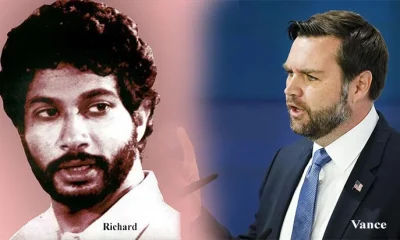
 Features4 days ago
Features4 days agoTwo films and comments
-

 Features7 days ago
Features7 days agoClean Sri Lanka and Noise Pollution (Part II)
-

 Editorial6 days ago
Editorial6 days agoCoal giant awakes, but uncertainty prevails











